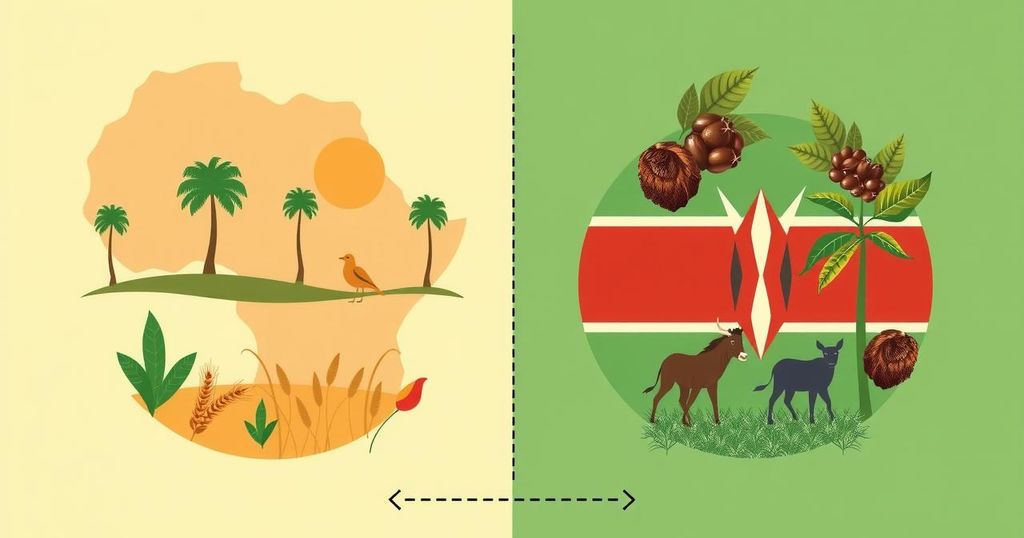Sudan has suspended all imports from Kenya following Kenya’s hosting of RSF leaders, citing national security concerns. This move exacerbates existing tensions due to the ongoing conflict between the RSF and Sudan’s national army. The situation raises questions about Kenya’s foreign policy, while the African Union warns against supporting parallel governance in Sudan. Kenya defends its role in peace mediation amid these developments.
The Sudanese government has officially suspended all imports from Kenya, prompted by Kenya’s recent decision to host leaders of the paramilitary Rapid Support Forces (RSF). This decree, issued by the Ministry of Trade and Supply, follows a Cabinet resolution aimed at holding Kenya accountable for enabling RSF activities, which Sudan views as a threat to its sovereignty and national security. The ban takes immediate effect across all transportation methods—land, sea, and air—with authorities directed to enforce this halt comprehensively.
Since April 2023, Sudan has experienced significant turmoil due to an ongoing power struggle between the RSF and the national army, leading to extensive casualties and mass displacement. With the army exerting control over Eastern and Northern regions and the RSF dominating the West and South, Kenya’s decision to engage with RSF leadership has further strained diplomatic relations. Sudan’s Ministry of Foreign Affairs has criticized this action, arguing that it interferes with internal matters and insisting that the RSF is a “terrorist militia” responsible for severe crimes, including genocide.
The African Union has taken a stance on the situation, warning that supporting a parallel government threatens the integrity of Sudan and may lead to its partition. The AU maintains that it does not accept any breakaway government attempts within Sudan, emphasizing the importance of a unified state.
In response to the criticism, Kenya’s Foreign Affairs Cabinet Secretary, Musalia Mudavadi, has asserted that Kenya is committed to fostering peace in Sudan and has traditionally provided a neutral setting for conflict resolution in the region. He pointed out that Sudanese factions have historically sought external mediation, highlighting a recent gathering in January 2024 aimed at discussing a transition to civilian governance. He argued that the collaboration between RSF and civilian groups in drafting a roadmap in Nairobi aligns with Kenya’s broader objectives for peacekeeping in the region. As tensions rise, the future of trade relations between Kenya and Sudan appears uncertain, potentially impacting regional stability.
The indefinite suspension of imports by Sudan from Kenya underscores the complexities involved in regional politics, particularly in light of the ongoing conflict within Sudan. The situation poses significant implications for diplomatic and trade relations between the two nations, as tensions escalate due to conflicting foreign policies. While Kenya advocates for its role in facilitating peace processes, Sudan emphasizes its sovereignty and the threat posed by the RSF, suggesting a precarious path ahead for both countries and the broader region.
Original Source: www.tv47.digital




